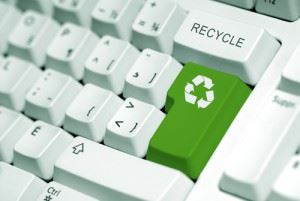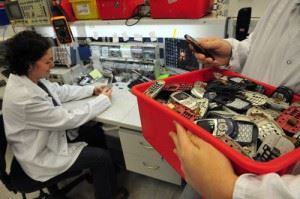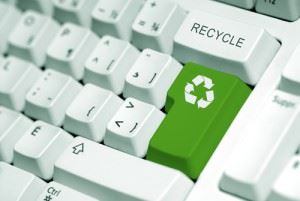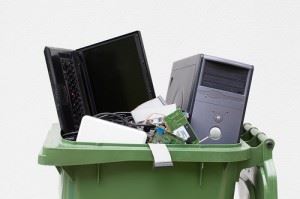Improper waste disposal wreaks havoc on our planet as well as future generations of human beings. Though it might seem efficient to dispose of undesired items and substances in dumpsters, garbage cans, drains, landfills or hidden spaces, doing so often compromises the integrity of the environment. The failure to dispose of waste in the proper manner will inevitably hurt our pocketbooks as well. Taxes will rise across posterity as taxpayers are forced to rectify sites that have been compromised by the failure to properly maintain the land and water around us.
An estimated 15 percent of all items disposed in a given year are hazardous. Take a close look at  our environment and you’ll notice that our rivers, lakes, oceans and numerous other sites have already been poisoned. Thousands of aquatic animals wash up on the shore each year due to the public’s general failure to eliminate waste in an environmentally conscious manner. Plenty of marine and amphibious creatures display signs of mutation for the same reason. This has to stop. Let’s take a look at exactly how improper waste disposal threatens our surroundings.
our environment and you’ll notice that our rivers, lakes, oceans and numerous other sites have already been poisoned. Thousands of aquatic animals wash up on the shore each year due to the public’s general failure to eliminate waste in an environmentally conscious manner. Plenty of marine and amphibious creatures display signs of mutation for the same reason. This has to stop. Let’s take a look at exactly how improper waste disposal threatens our surroundings.
The Contamination of Surface Water
When waste reaches water bodies, it alters the water’s chemical composition. Such harm is typically referred to as water pollution. This contamination negatively impacts all of the ecosystems within the water. Even animals that rely on the water for drinking water will suffer health consequences from consuming polluted water. Furthermore, consider the predicament that contaminated water poses for humanity. Water is the “new oil” because of its scarcity. The bottom line is that human life can’t survive on planet Earth unless there is an abundance of clean water.
Leachate
Water that moves through contaminated spaces creates a liquid referred to as Leachate. It creates a toxic mix of nasty chemicals that often results in harmful substances reaching the groundwater, surface water and/or soil.
The Contamination of Soil
Improper waste disposal often leads to a leaking of hazardous chemicals into the soil. Such contamination stunts plant growth and even kills some plants as they pull up poisoned soil directly through their roots. This has a domino affect when human beings and animals consume the compromised plants. In a nutshell, the haphazard disposal of waste has the potential to threaten our food supply.
Air Pollution
Poor waste management practices create pollution in the land as well as the surrounding air. Those who breathe in polluted air suffer negative health effects as the contaminants sucked into the lungs quickly spread to other body sites.
Mind Your Disposal of Household Products
Household cleaners, lawn care products, medicines, paint, automobile fluids and beauty products all have the potential to harm the environment. The manner in which you disposes of these items is critically important. Do not throw them in the trash as their presence threatens the well-being of those who remove your junk and garbage. It is critically important that we all make an effort to prevent hazardous waste from reaching landfills. As noted above, hazardous waste that is improperly disposed has the potential to reach the groundwater that we all rely upon for drinking and bathing.
Do not make the mistake of flushing hazardous liquids down the toilet, drain or sink. Such hazardous fluids will move through your local sewage system and end up in treatment plants that are incapable of handling such waste. You might be tempted to dump such fluids into storm drains or in remote areas. This is also a grave mistake as the harmful liquids will inevitably reach local waterways and eventually travel to lakes, beaches and even the Pacific Ocean.
Contact the professionals at Junk King. We are able to help you dispose of your waste in an environmentally friendly way.
 Text Us
Text Us





 to legally dispose of an electronic device you should consider whether another person might benefit from using it. If there is any chance that an impoverished person, student or organization can obtain any utility whatsoever out of the electronic device, donate it or sell it. Finding a new owner for the device will improve another person’s life while simultaneously reducing the burden placed on electronic recycling/re-use hubs. Even if the device is malfunctioning, there still might be a way to remedy the problem.
to legally dispose of an electronic device you should consider whether another person might benefit from using it. If there is any chance that an impoverished person, student or organization can obtain any utility whatsoever out of the electronic device, donate it or sell it. Finding a new owner for the device will improve another person’s life while simultaneously reducing the burden placed on electronic recycling/re-use hubs. Even if the device is malfunctioning, there still might be a way to remedy the problem. soil and local water supply, which obviously isn’t good for anybody.
soil and local water supply, which obviously isn’t good for anybody.
 No matter how much high-tech awesomeness your computer is packed with right now, it will eventually stop working — or just become too outdated to be worth powering on. When this happens, you need to figure out what to do with it. Just so you know, throwing it into the garbage isn’t the answer. You need to recycle your computer. Putting together the parts that make up a computer takes a lot of energy. Technology makers use much less energy when they don’t have to dig up fresh raw materials and create new parts. This means that recycling your computer will be a big boon for the management of sustainable waste energy.
No matter how much high-tech awesomeness your computer is packed with right now, it will eventually stop working — or just become too outdated to be worth powering on. When this happens, you need to figure out what to do with it. Just so you know, throwing it into the garbage isn’t the answer. You need to recycle your computer. Putting together the parts that make up a computer takes a lot of energy. Technology makers use much less energy when they don’t have to dig up fresh raw materials and create new parts. This means that recycling your computer will be a big boon for the management of sustainable waste energy. The holidays are a popular time for receiving new electronics, especially computers. Once you transfer the data from your old machine to the new, you’ll probably decide on computer recycling for yesterday’s model. Computer recycling used to be fairly easy: remove and smash the hard drive and then dispose of the shell. Today it isn’t quite so simple.
The holidays are a popular time for receiving new electronics, especially computers. Once you transfer the data from your old machine to the new, you’ll probably decide on computer recycling for yesterday’s model. Computer recycling used to be fairly easy: remove and smash the hard drive and then dispose of the shell. Today it isn’t quite so simple.